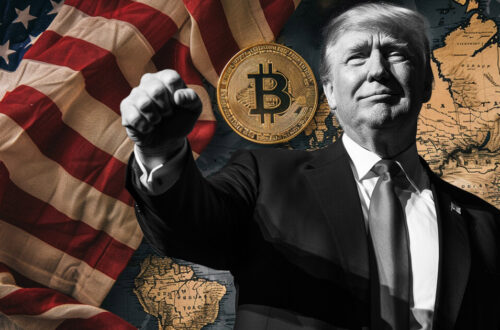
Despite attempts to police cryptocurrency through enforcement actions, United States financial regulators “are bound by legal reality” and Congress will ultimately decide crypto regulations the policy expert for the crypto advocacy group Blockchain Association has suggested.
The association’s chief policy officer, Jake Chervinsky, shared his views in an extensive Feb. 14 Twitter thread on the state of crypto policy.
He noted neither the Securities and Exchange Commission (SEC) nor the Commodity Futures Trading Commission (CFTC) “has the authority to comprehensively regulate crypto.”
14/ No matter how many enforcement actions the SEC and CFTC bring, they are bound by legal reality:
Neither has the authority to comprehensively regulate crypto, neither can obtain it through any amount of enforcement, and neither will ever have it without an act of Congress.
— Jake Chervinsky (@jchervinsky) February 14, 2023
Chervinsky believed a deal on crypto legislation seems “unlikely, given the ideological gap between House Republicans and Senate Democrats.” He accused the SEC and CFTC of overstepping their authority in an attempt to “get things done” without Congress.
Chervinsky called for the industry to remain calm following the recent flurry of activity from “crypto’s chief antagonist,” the SEC, and pointed to its crackdown on staking services as an example.
13/ The SEC’s main tactic is regulation by enforcement, and it struck again last week by labeling Kraken’s staking service a security.
That’s frustrating, but it doesn’t change much for anyone else. Settlements aren’t the law, and every set of facts is unique. Others will fight.
— Jake Chervinsky (@jchervinsky) February 14, 2023
The SEC’s Feb. 9 settlement with crypto exchange Kraken, that banned the exchange from ever offering staking services to U.S. customers, was publicly rebuked by SEC Commissioner Hester Peirce.
In a Feb. 9 dissenting statement, Peirce argued that regulation by enforcement “is not an efficient or fair way of regulating” an emerging industry.
Related: US lawmakers and experts debate SEC’s role in crypto regulation
Chervinsky suggested litigation is one way the crypto industry can push for good policy, noting the judiciary plays an important role in dictating policy that has been “ignored.”
20/ FIFTH, we can litigate.
Policy is made in all three branches of government, and we’ve ignored the judiciary for too long.
At the core of crypto is a fight for civil liberty, a fight that calls for impact litigation.
Our best allies may be in the courts. Let’s go find them.
— Jake Chervinsky (@jchervinsky) February 14, 2023
Crypto exchange Coinbase also faces an SEC probe similar to what resulted in Kraken’s settlement.
Coinbase CEO and co-founder, Brian Armstrong, has taken a more resolute stance, claiming that getting rid of crypto staking would be terrible for the U.S.
Armstrong argued in a Feb. 12 Twitter post that Coinbase’s staking services are not securities and would “happily defend this in court if needed.”
Coinbase’s staking services are not securities. We will happily defend this in court if needed.https://t.co/GtTOz77YV3
— Brian Armstrong (@brian_armstrong) February 12, 2023
Judge’s rulings in landmark cases create a legal precedent. If such a case were brought to court and a judge decided Coinbase’s staking services did not classify as securities, other crypto companies in a similar position could use the precedent as part of their defense.





Your point of view caught my eye and was very interesting. Thanks. I have a question for you. https://accounts.binance.com/ur/register-person?ref=OMM3XK51
I have read your article carefully and I agree with you very much. This has provided a great help for my thesis writing, and I will seriously improve it. However, I don’t know much about a certain place. Can you help me? https://www.gate.io/uk/signup/XwNAU